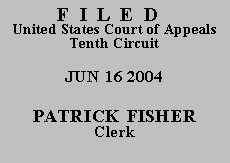

| LAWRENCE L. KELLY,
Plaintiff-Appellant,
v.
UNITED STATES DEPARTMENT
OF JUSTICE; UNITED STATES OF
AMERICA Defendants-Appellees. |
No. 03-3371
(D.C. No. 03-CV-4137-JAR) (Kansas) |
The Justice Department is undeniably an arm of the United States Government. For a suit against the United States to be viable, "[a] waiver of the Federal Government's sovereign immunity must be unequivocally expressed in statutory text." Lane v. Pena, 518 U.S. 187, 192 (1996). We must strictly construe any waiver of sovereign immunity, and where one is not explicit, it cannot be implied. Id. None of the statutes Mr. Kelly cites effect a waiver of the United States' sovereign immunity by providing that an action may be brought directly against the United States. As such, "the district court lacked subject matter jurisdiction to consider the claim." Steele v. Fed. Bureau of Prisons, 355 F.3d 1204, 1213 (10th Cir. 2003).
Because we conclude the district court lacked subject matter jurisdiction, we need not review that court's alternative dismissal for failure to state a claim. The district court's dismissal of Mr. Kelly's complaint is AFFIRMED.
ENTERED FOR THE COURT
Stephanie K. Seymour
Circuit Judge
*.After examining appellant's brief and the appellate record, this panel has determined unanimously that oral argument would not materially assist the determination of this appeal. See Fed. R. App. P. 34(a)(2) and 10th Cir. R. 34.1(G). The case is therefore submitted without oral argument. This order and judgment is not binding precedent, except under the doctrines of law of the case, res judicata, or collateral estoppel. The court generally disfavors the citation of orders and judgments; nevertheless, an order and judgment may be cited under the terms and conditions of 10th Cir. R. 36.3.